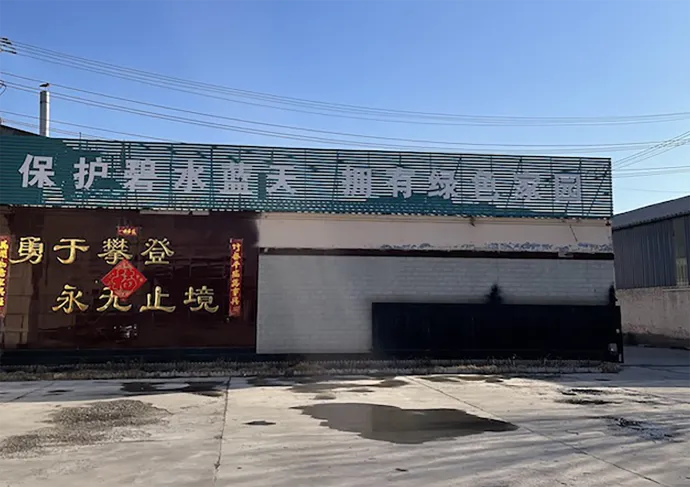Dec . 03, 2024 18:20 Back to list
Using Fiberboard for Sustainable Building Materials and Insulation Solutions
The Versatility and Benefits of Mineral Fiber Board
Mineral fiber board, a versatile building material, has gained substantial popularity in various construction and insulation applications. Composed primarily of inorganic mineral fibers, this board is recognized for its exceptional performance characteristics, including sound absorption, thermal insulation, and fire resistance. In recent years, the demand for mineral fiber board has surged, leading to innovations and improved manufacturing processes.
Composition and Manufacturing Process
Mineral fiber boards are primarily composed of materials such as rock wool or glass wool, which are derived from naturally occurring minerals. The manufacturing process typically involves melting the raw materials at high temperatures, before spinning them into fibers. These fibers are collected and compressed into boards of varying thicknesses and densities, depending on their intended application. The resulting product is eco-friendly, often made from recycled content, and free from harmful chemicals, making it a suitable choice for sustainable building practices.
Key Properties
1. Thermal Insulation One of the primary benefits of mineral fiber board is its excellent thermal insulation properties. The air pockets within the fibrous structure trap heat, preventing energy loss in buildings. This not only helps maintain comfort but also reduces energy costs by minimizing the need for heating and cooling.
2. Acoustic Performance Mineral fiber boards are well-known for their sound-absorbing capabilities. Their porous structure effectively dampens sound waves, making them an ideal choice for commercial spaces, schools, and residential buildings where noise control is essential. By implementing mineral fiber boards, architects can create quieter environments, enhance privacy, and improve overall well-being.
3. Fire Resistance Safety is paramount in construction, and mineral fiber boards excel in this area due to their high fire resistance ratings. Made from non-combustible materials, they do not emit harmful gases when exposed to fire. In many jurisdictions, mineral fiber boards help buildings achieve compliance with stringent fire safety standards, making them a preferred choice for high-rise constructs and commercial buildings.
mineral fiber board

4. Moisture Resistance While mineral fiber boards are not entirely waterproof, many products are designed to resist moisture intrusion, helping to prevent mold growth and structural degradation. This property is crucial in applications such as ceilings and walls in humid environments.
5. Sustainability As more builders and architects become environmentally conscious, the demand for sustainable materials is on the rise. Mineral fiber boards often incorporate recycled materials, further enhancing their ecological benefits. Additionally, their thermal efficiency contributes to reduced energy consumption, aligning with green building initiatives aimed at lowering carbon footprints.
Applications
The versatility of mineral fiber boards extends across a myriad of applications
- Commercial Buildings Widely used in office spaces, schools, and hospitals, mineral fiber boards provide acoustic control and fire safety in demanding environments. - Residential Construction Homeowners benefit from improved energy efficiency and a quieter living space, making mineral fiber boards a popular choice for insulation and ceiling tiles. - Industrial Facilities With their temperature regulation and sound absorption properties, mineral fiber boards are often employed in factories and manufacturing plants to improve worker comfort and productivity.
Conclusion
In conclusion, mineral fiber board is an essential building material that offers a combination of thermal insulation, acoustic performance, fire resistance, and moisture control. Its sustainable nature and versatility make it suitable for a wide range of applications, from residential homes to large commercial buildings. As modern construction continues to prioritize energy efficiency and environmental sustainability, the relevance of mineral fiber board is expected to grow. Looking ahead, advancements in manufacturing processes and materials technology may further enhance the properties and applications of mineral fiber boards, solidifying their place in the future of construction. Whether you are an architect, builder, or homeowner, considering mineral fiber board as a key element in your building strategy can yield significant benefits in terms of comfort, safety, and sustainability.
-
Quality Ceiling Trap Doors & Access Panels | Easy & Secure AccessNewsAug.30,2025
-
Durable Ceiling T Grid Systems | Easy InstallationNewsAug.29,2025
-
PVC Gypsum Ceiling: Durable, Laminated Tiles for Modern SpacesNewsAug.28,2025
-
Pvc Gypsum Ceiling Is DurableNewsAug.21,2025
-
Mineral Fiber Board Is DurableNewsAug.21,2025
-
Ceiling Tile Clip Reusable DesignNewsAug.21,2025







